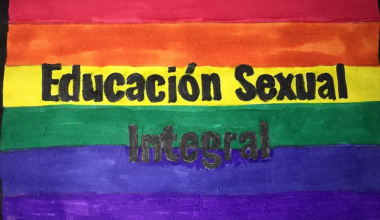During periods of significant social and political upheaval, freedom is put to the test. Sir Keir Starmer has taken a tough stance against the criminal and hard-right elements that ransacked cities, set fire to buildings housing asylum seekers, and threw bricks at mosques and police in the wake of the horrific stabbing of three young girls in Southport at the end of July, which sparked riots across England. The actions of a small number of violent and bigoted people have become a lightning rod for restricting the liberties of the majority.
Starmer made several recommendations in a series of Downing Street press conferences to put an end to the rioting, orchestrated by what he called ‘far-right thuggery’. He vowed to punish those involved in criminal damage with lengthy prison terms. Subsequently, he threatened to use facial recognition software to identify the most extreme agitators. The most concerning thing he said was that social media companies should be held more accountable for spreading ‘disinformation’. A dire warning was then issued to everyone who would sow discord by disseminating false information, rumours, or speculation online.
Of course, false information has circulated widely in recent weeks, both online and off. The majority of the unrest was caused by the blatantly false allegation that the stabbing suspect was a Muslim asylum seeker. Whatever else they indicate, however, the events of August 2024 serve as a terrifying reminder of what happens when the state attempts to control free speech.
The official UK government X account posted a message on social media warning users to ‘think before you post’, as, according to the Crown Prosecution Service, ‘content that incites violence or hatred isn’t just harmful—it can be illegal.’ If this had come from a friend over a pint in the pub, it wouldn’t have been quite as bad, but this was from an organisation that can put someone in jail for speaking their mind.
This was the fate of Lee Joseph Dunn, who was sentenced to two months in jail for posting what Cumbria Police called offensive and racially aggravated content online. The 51-year-old Sellafield worker shared three separate images on Facebook. The first featured a group of men who appeared to be Asian and was captioned, ‘Coming to a town near you.’ Another showed Asian-looking men stepping off a boat onto Whitehaven Beach with the caption, ‘When it’s on your turf, then what?’ The final one, which shows men with Asian-like features brandishing knives in front of the Palace of Westminster, was also captioned, ‘Coming to a town near you.’ Offensive? Controversial? Perhaps. However, jail time for words that refrained from inciting violence?
Elon Musk has now become involved. The CEO of X and US tech billionaire took to his own platform. ‘Is this Britain or the Soviet Union?’, he joked, going on to post a Family Guy meme of Peter Griffin about to be executed with the statement, ‘In 2030 for making a Facebook comment the UK government didn’t like.’ He then engaged in a spat with former Scottish First Minister Humza Yousaf, accusing him of being a ‘super, super racist’ who ‘loathes white people.’ Musk is most likely alluding to Humza’s time as the Justice Minister, during which he went on the now-famous ‘white’ tirade, citing a long list of governmental positions along with the colour of the holder’s skin. Remind me about inciting racial hatred again?
The Home Secretary, Yvette Cooper, directed her words towards the online ‘armchair thugs’ she said were to blame. Cooper asserted during an appearance on Radio 4’s Today programme that social media companies were responsible for the ‘shocking misinformation that has escalated’ the riots.
It is likely that some of the people who were arrested will face charges under the Online Safety Act, which criminalises sending false information. Meanwhile, the 2003 Communications Act—specifically Section 127—makes it illegal to send ‘grossly offensive’ messages. If it is ruled that the defendant was motivated by ‘hate’, the sentence may be increased.
That’s the problem with grey areas in the law. It creates definition creep. How do you define hatred? Some people view shouting as violent, but there are no elaborate hate speech laws that prohibit shouting—unless you include the 61-year-old man who was sentenced to 18 months in jail for chanting ‘Who the fuck is Allah?’ in front of the police during a demonstration outside Downing Street on 31 July. People who often cheer the loudest for censorship run the very real risk of experiencing its authoritarian sting themselves. During the Middlesbrough riots, Hope Not Hate CEO Nick Lowles falsely claimed on Twitter that an acid attack had been committed against a Muslim woman. Now, he has apologised. The lesson? Be careful what you wish for.
It may seem counterintuitive, but it is possible to loathe the rioters’ actions while simultaneously criticising the government’s response and its effects on civil liberties. Any crackdown on free speech, misinformation, or the enduring abstraction of ‘hatred’ will never be limited to those actively committing violent crimes or causing harm to others. It will be used as a weapon against those who have dissenting opinions or criticise government overreach.
Nigel Farage is a case in point. The leader of Reform UK released an ill-advised video implying that the authorities may be hiding important details about the Southport suspect and his possible intentions from the public. For the record, Farage did not repeat any of the false assertions made online that the suspect was a Muslim asylum seeker. Nevertheless, he was accused by LBC’s James O’Brien of directly inciting the riots. The ‘left-wing Limbaugh’ now refers to them as the ‘Farage riots’. If someone assaulted Nigel Farage after listening to this, should James O’Brien be arrested for incitement to violence? No. That’s the thing about free speech. It’s for everyone, not just the people we agree with.
By labelling everyone as far-right, you run the risk of associating all right-of-centre journalists, populist politicians, and people with moderately centrist viewpoints with extremists and racists. ‘Far-right narratives’ were being mainstreamed after the Southport tragedy, according to the anti-racism organisation Hope Not Hate. How do you define ‘far-right’? According to Hope Not Hate, one defining feature of being far right is believing that multiculturalism isn’t working in the U.K. That opinion, by the way, is a mainstream, majority view, according to Hope Not Hate’s own research.
Some have demanded strong restrictions on so-called ‘Islamophobia’, using the riots as a pretext. The Daily Mail, according to suspended Labour MP Zarah Sultana, has ‘fanned the flames of hate and normalised Islamophobic and anti-migrant rhetoric.’ Labour also adopted the All-Party Parliamentary Group on British Muslims’ divisive definition of Islamophobia while they were in opposition, promising to enact it into law if they were elected. This would effectively make criticising Islam, and potentially even critiquing Islamist terrorism, illegal. It would be a de facto Islamic blasphemy law. When London Mayor Sadiq Khan met with Starmer to celebrate Eid last month, he urged him to do more to tackle Islamophobia. The prime minister agreed. ‘There’s certainly stuff online which I think needs tackling more robustly than it is at the moment,’ he said.
The dangers of this sort of creeping censorship have been pointed out by respected journalists for years. In 2009, for instance, Christopher Hitchens gave a speech that was remarkably prescient:
The next thing [is] you’ll be told you can’t complain because you’re Islamophobic. The term is already being introduced into the culture as if it was an accusation of race hatred, for example, or bigotry, whereas it’s only the objection to the preachings of a very extreme and absolutist religion.
While we condemn the rioters, prosecute the offenders, and restore the safety and security of the affected communities, we also need to have a serious conversation about why there was such widespread resentment in the first place and the best ways to address people’s legitimate complaints. The breakdown in the social cohesion and coexistence of distinct ethnic communities is the root cause of this communal violence. In the past two years alone, over a million legal immigrants have arrived in Britain each year, most of them from non-European countries. This has resulted in major demographic changes. Between 2001 and 2021, for example, white ethnic Brits decreased as a proportion of the population by 13.1%—from 87.5% to 74.4%.
Multiculturalism has failed. This is not a controversial statement. Numerous problems have arisen as a result of the mass immigration of individuals who reject Western liberal democracy and our shared, innate sense of civic virtues. Even though white Britons commit many serious crimes, the sharp rise in sectarian violence, interethnic conflicts on the streets of Leicester, the child grooming gang scandal, and the competition for scarce resources have caused many to question the state’s immigration policies. Laws protecting minorities from hate speech and increased censorship only serve to reinforce the perception that white British people are not being heard.
While the media has pushed the narrative that we are a nation beset with racists and fascists, it is the law-abiding majority who have legitimate reason to feel frustrated—as evidenced by the protestors who yelled ‘save our kids’. If we don’t address some serious questions about immigration, violence, and why the police appear to treat some people from minority backgrounds differently, these riots will happen again and again. To combat this, we need more, not less speech.
Related reading
The far right and ex-Muslims: ‘The enemy of my enemy is not my friend’, by Sara Al-Ruqaishi
Reflections on the far right riots: a predictable wave of violence, by Khadija Khan
Featured image: Laurie Noble. CC BY 3.0.









1 comment
This government’s knee jerk overreaction to social media so called incitement essentially backs allegations of two tier policing/prosecution which is all the more scary as so much is based upon selective perception and opinion.
Your email address will not be published. Comments are subject to our Community Guidelines. Required fields are marked *
Donate